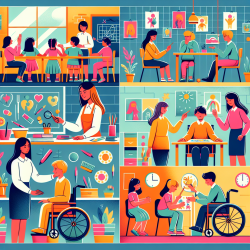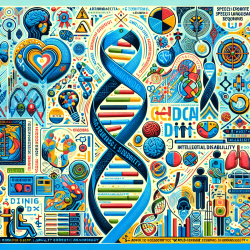Empowering Every Student: A Collaborative Approach to Special Education
In the realm of education, every student is unique, and the journey to unlock each child's potential is a collaborative effort. At the heart of this mission is a dedicated team of educators and specialists working together to create an inclusive and supportive environment for students with special needs. This blog delves into the vital roles played by various members of the special education team and how they contribute to the holistic development of students.
The Role of the Classroom Teacher
Classroom teachers are the frontline advocates for students, identifying those who may require accommodations or modifications in their learning programs. While not all teachers possess specialized qualifications in special education, their role is crucial in delivering services to all students. By working closely with students, teachers can tailor their approaches to meet individual needs within the regular classroom setting.
The Principal's Leadership
Principals play a pivotal role in the special education framework by ensuring the development and implementation of Individual Education Plans (IEPs). They chair Identification Placement and Review Committee (IPRC) meetings and supervise all staff, fostering an environment where special education needs are met with expertise and compassion.
School-based Learning Support Services (LSS) Staff
- Learning Support Teacher (LST) / Learning Resource Teacher (LRT): These educators are integral to the delivery of special education services, handling both administrative and educational needs. They assist with early identification, curriculum differentiation, assessment, and intervention strategies.
- Specialized Program Teacher: They provide tailored learning opportunities based on each student's specific needs as outlined in their IEP, ensuring students progress at their appropriate levels.
- Educational Assistants (EA): Under the supervision of the principal, EAs assist in crisis intervention and support the implementation of behavior and instructional programs, adapting their roles to meet diverse student needs.
Specialized Roles in Special Education
The LSS department is a mosaic of specialized roles, each contributing uniquely to the support of students:
- Braillist: They produce Braille transcriptions and manage resources for students with visual impairments.
- Itinerant Teachers: These include teachers specializing in assistive technology, autism, learning disabilities, and sensory impairments, providing direct instruction and consultative services.
- Learning Support Consultants: They develop special education in-service opportunities and assist in program delivery, ensuring best practices are followed.
Comprehensive Support Teams
Special education is supported by a range of teams, each focusing on specific needs:
- Assistive Technology Team: Provides training and support for the use of technology in special education.
- Autism Spectrum Disorders Team: Offers direct and consultative support for students with ASD.
- Behaviour Support Team: Assists with challenging behaviors and coordinates specialized program placements.
- Developmental Disability Support Team: Supports schools and programs for students with developmental disabilities.
- Early Learning Team: Focuses on early identification and intervention for young learners.
- Gifted Support Team: Provides programming support for gifted students.
The Power of Collaboration
At the core of special education is collaboration—between teachers, specialists, parents, and the community. This partnership ensures that each student receives the support they need to thrive. By working together, we create an educational environment that is not only inclusive but also empowering for every student.
For more information, please follow this link.










